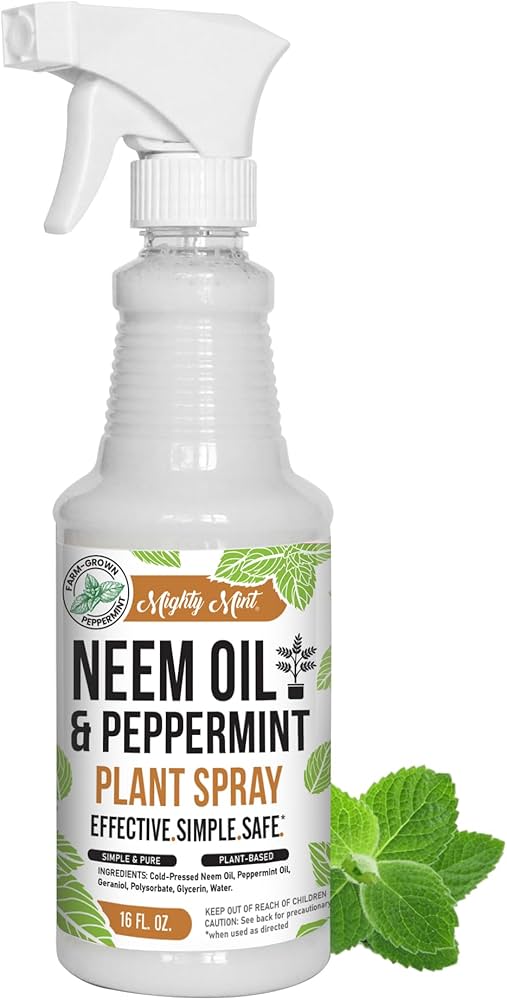Introduction
Neem oil has emerged as a highly effective, eco-friendly solution for gardeners aiming to protect their vegetable gardens naturally. Derived from the seeds of the neem tree (Azadirachta indica), this botanical oil offers a powerful blend of pest control and plant health benefits. In this article, we’ll explore how neem oil works in vegetable gardens, its application methods, and best practices to maximize its effectiveness while ensuring your edible plants thrive safely.
What Is Neem Oil and Why Use It in Vegetable Gardens?
Neem oil is a natural pesticide and fungicide extracted from neem tree seeds. Unlike synthetic chemicals, neem oil targets a broad range of pests without harming beneficial insects or the environment. This makes it ideal for vegetable gardens where maintaining ecological balance is crucial.
Key Benefits of Neem Oil in Vegetable Gardens
- Broad-spectrum pest control: Effective against aphids, whiteflies, spider mites, caterpillars, and more.
- Fungicidal properties: Controls powdery mildew, black spot, and rust.
- Safe for beneficial insects: Pollinators and predatory insects are generally unharmed.
- Biodegradable: Breaks down quickly without leaving harmful residues.
How Does Neem Oil Work to Protect Vegetables?
Neem oil contains azadirachtin, the compound responsible for disrupting insect growth and reproduction. It acts as:
- An antifeedant that prevents pests from eating leaves.
- A growth regulator that stops larvae from maturing.
- A repellent that discourages egg-laying.
These mechanisms reduce pest populations while allowing the garden ecosystem to maintain balance. Additionally, neem oil’s antifungal action helps prevent common vegetable diseases, promoting healthier plant growth.
Applying Neem Oil in Your Vegetable Garden
Preparation and Dilution
Neem oil is concentrated and must be diluted before use. A common recipe is:
- 2 tablespoons of neem oil
- 1 teaspoon of mild liquid soap (emulsifier)
- 1 quart of warm water
Mix thoroughly to create a uniform spray solution.
Application Tips
- Spray in early morning or late evening to avoid leaf burn and protect beneficial insects.
- Cover all plant surfaces, including undersides of leaves.
- Apply every 7-14 days or after heavy rain.
- Test on a small plant area first to check for sensitivity.
Safety Precautions
- Use protective gloves and eyewear.
- Avoid spraying during flowering to protect pollinators.
- Store neem oil away from direct sunlight and heat.
Real-World Success: Case Studies and Expert Insights
Experienced vegetable gardeners and horticulturists report significant pest reductions using neem oil without harming plant health. For example, a study published in the Journal of Integrated Pest Management (2022) found neem oil reduced aphid infestations by up to 85% in tomato crops.
Master gardener Linda Chavez notes, “Neem oil is my go-to for pest control in my organic vegetable beds. It keeps pests in check while supporting the beneficial insects that naturally control pests.”
Integrating Neem Oil with Overall Garden Care
Neem oil works best as part of a comprehensive garden management strategy:
- Rotate crops to prevent pest build-up.
- Encourage beneficial insects like ladybugs and lacewings.
- Maintain plant health with proper watering and fertilization.
- Remove heavily infested or diseased plant material promptly.
Conclusion
Neem oil is a trusted, natural ally for vegetable gardeners seeking safe and effective pest and disease management. Its unique mode of action, environmental safety, and ease of use make it an excellent choice for maintaining healthy, productive vegetable gardens. By incorporating neem oil thoughtfully into your garden routine, you can protect your crops while fostering a balanced ecosystem.
Start with small applications and observe your garden’s response to maximize benefits. Healthy plants and a thriving garden ecosystem await with neem oil as part of your sustainable gardening toolkit.
